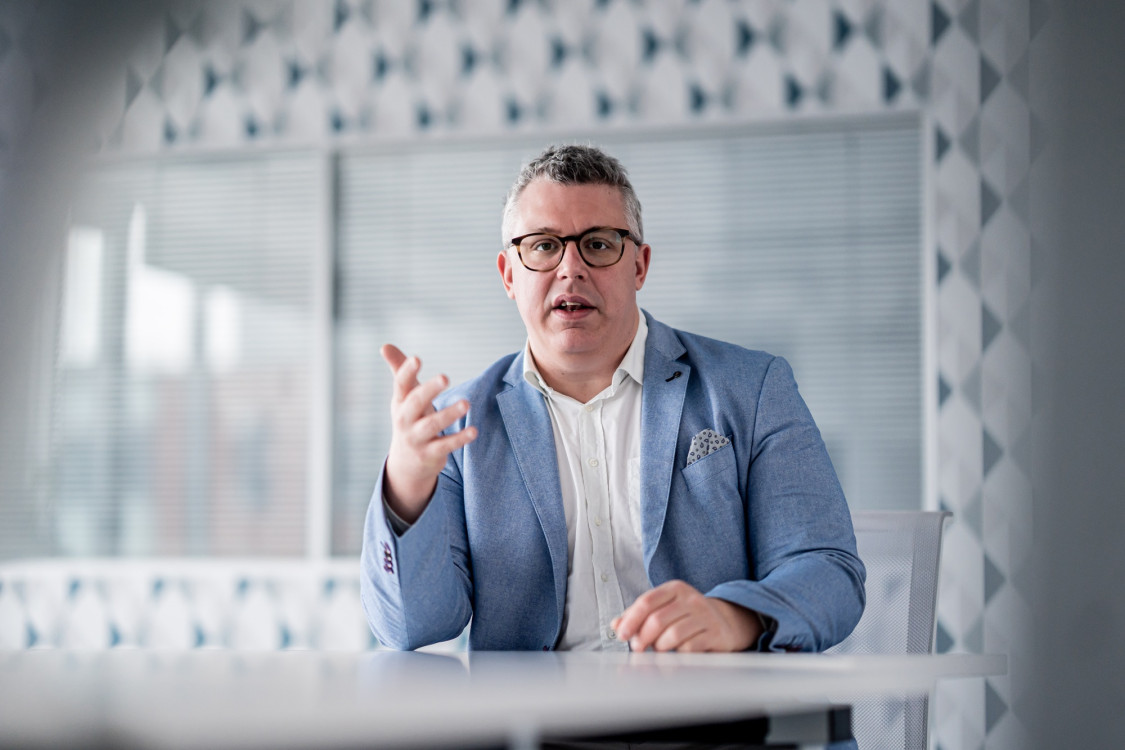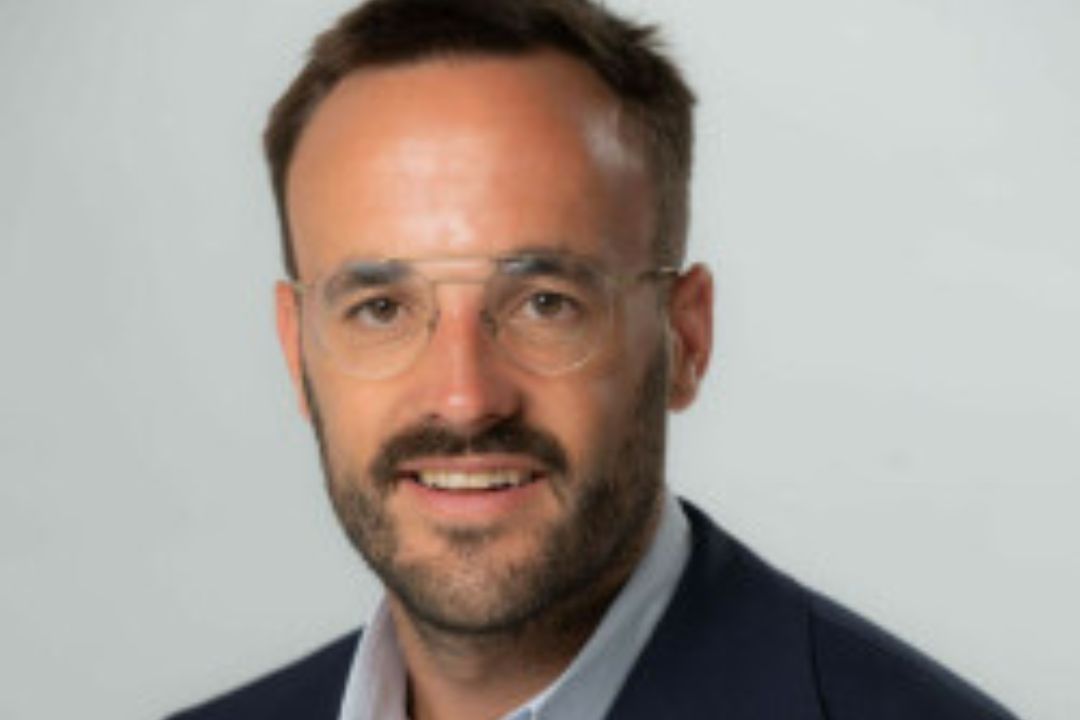6th March 2025
The dynamic development in digital health and medical technology is creating new opportunities, but regulatory hurdles, licensing complexity and gaining investor confidence remain a major challenge for start-ups. While the European Union aims to increase the competitiveness of the continent by encouraging more successful healthcare start-ups to become global players, the reality is that most start-ups fail in their first few years. But why is it harder to succeed in this field than in other industries? How can funding gaps be bridged? The Hungarian portfolio sat down with Tamás Békási, EIT Health InnoStars RIS Business Creation Lead, to talk about factors determine whether an idea succeeds or fails in its early stages.

The healthcare innovation market is one of the fastest growing sectors worldwide – and for good reason. New tools, services and solutions are revolutionising patient care, reducing the burden on doctors and making treatments more personalised. From artificial intelligence-driven diagnostic systems to wearable smart devices, there are lots of innovations that are transforming not only healthcare but also people’s everyday lives.
Although it is not easy to succeed in the market for health innovations, given the complexity of the regulations and the authorisation process, there is still a lot of potential. In particular, the digital health and medtech sectors offer fast growth opportunities for start-ups, where new ideas can be brought to market in a shorter time than in the pharmaceutical industry, for example.
The pace of growth is staggering: the size of the digital health market in the European Union reached €64 billion last year, according to a report by Graphical Research, and the global market for medical devices is forecasted to grow from $542.21 billion in 2024 to $886.80 billion in 2032. The expansion is currently driven mainly by trends such as the development of AI-based healthcare applications, remote diagnostics, robotic surgery and genomics.
It’s harder to break into the market, but success is more diverse
For healthcare start-ups, entering the market can be harder than in other industries, but in their cases, success is about much more than business results. “Healthcare start-ups play a dual role: on the one hand, there is a huge business opportunity in this sector, as it is one of the most lucrative and high-potential markets in the world. On the other hand, these early-stage companies can contribute to improving people’s quality of life and healthcare, first locally and then on a broader scale,” Tamás Békási, EIT Health InnoStars RIS Business Creation Lead, told Portfolio.
He stressed that one of the biggest challenges for start-ups is to overcome the negative effects of socio-cultural environment and education on innovation and entrepreneurship. To do this, it is essential to develop a mindset, at least at a regional level, which not only helps to identify problems that need innovative solutions, but also plays a key role in long-term economic planning.
One of the European Union’s priorities is to catch up with and overtake the world leaders – America, China and Israel – in terms of innovation performance. However, this requires the creation of more start-up unicorns – i.e. start-ups that can become global leaders – and an increasingly unified market, which will significantly reduce the time to market for start-ups.
The EU supports the growth of innovation through a range of instruments, including its own agencies such as the European Institute of Innovation and Technology (EIT), and health innovation through the EIT Health. However, the creation of start-up unicorns is more complex, as the unique structure of the EU and the different regulatory practices in the Member States make market consolidation a lengthy and cumbersome process. This is somewhat counterbalanced by the strategy of steering European start-ups, that have been strengthened in local markets, towards Asia, but mainly the US, in order to achieve faster and more meaningful growth.
What does it take to start a start-up and survive?
The real breakthrough for a start-up is when it not only recognises a pressing problem but also sees that there is a solvent demand for it. And that’s where the real challenge begins developing and testing a workable solution and business model. According to Tamás Békási, two things can be key at this stage: being connected to professional communities and being open to learning.
Because of their limited resources, many early-stage start-ups tend to selectively use elements of an accelerator program, and , for example skip longer training and simulation modules. ‘This can be a serious disadvantage, as it deprives them not only of valuable knowledge, but also of the opportunity to meet professionals who could be key to their future growth.’ In this context, the composition of the team, its attitude and the competencies it possesses are also crucial to success. A significant proportion of investors invest not just in a product or service, but in the team behind it – or even in a single key person.
And once you have a well-identified problem, a workable, validated solution and a competent team willing to learn, there is “only” one difficulty left: keeping the company afloat financially. Improper cash flow management or simply a depletion of financial resources can easily derail any great idea. This is why knowing and obtaining non-reimbursable local and EU funding is crucial, as it can be the lifeline to surviving the ‘valley of death’. If a start-up survives this period, it has a chance of attracting investors and building on a solid foundation for the long term.
You have to be able to sell a great idea
In recent years, EIT Health has provided financial support, training and networking opportunities to hundreds of promising start-ups, in particular through the RIS programme, which focuses on emerging innovation regions. The start-ups we have supported, including several Hungarian teams, have successfully entered the market and are still achieving good results.
As part of the RIS programme, the InnoStars Awards accelerator specifically targets early-stage start-ups – those that already have an MVP or prototype, or are about to enter the market, but have little or no private equity appeal. ‘The right support can mean the survival of a business, which is why we have continually tailored our selection processes to identify and support the most promising teams of applicants,’ he added. The selected start-ups will not only receive non-refundable support but will also participate in intensive training sessions lasting several weeks. ‘We don’t want to give theoretical knowledge, but fresh and practical methodologies, whether it’s business modelling, details of the regulatory environment or investor relationship management that can really help teams to go to market.
And speaking of practicality, EIT Healthin the the Investment Track programme is working together with start-ups that have already gone to market with seed/Series A investment rounds, and we have also introduced a board meeting simulation as well, developed by our experts. In this, participants can experience – in a protected, but real-life environment what it’s like to work with an investor who expects a return on investment.
The simulation was included for a reason: as research from within the organisation and from the EU has shown, start-ups in innovation-deprived regions not only face difficulties in raising capital, but often lack the competences needed to work with an investor in the long term.
“Just as we have responded to the real needs of start-ups with the simulation, we are innovating for 2025. Our new solutions will focus primarily on improving sales capabilities, because a good idea is not enough, you also need to be able to sell it,” said Tamás Békási.
Read the full article at https://www.portfolio.hu/global/20250218/unikornisok-a-lathataron-igy-torhetnek-at-az-europai-egeszsegugyi-innovaciok-740755
New data shows AI innovation needs skills beyond coding

The largest live dataset of AI start-up talent analysed.
Europe's top health start-ups take centre stage: EIT Health Catapult winners are revealed at HLTH Europe

2025 Catapult programme winners announced.
Finding Europe’s next healthtech leaders: Insights from Antoine D’Hollander

Insights from Antoine D’Hollander, Capricorn Partners.